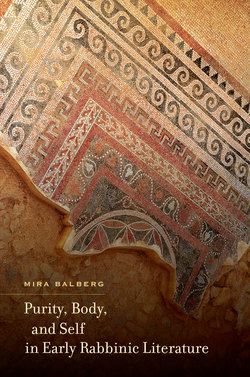Читать книгу Purity, Body, and Self in Early Rabbinic Literature - DR. S Mira Balberg - Страница 8
На сайте Литреса книга снята с продажи.
ОглавлениеACKNOWLEDGMENTS
This book owes its existence to the mentorship, guidance, and advice of many teachers, colleagues, and friends. The study presented here is based on my doctoral dissertation, which was written at Stanford University under the tutelage of my doktormutter, Charlotte Fonrobert. Charlotte’s advising, which was as kind and nurturing as it was rigorous and uncompromising, allowed me to trace the intellectual conversations in which I wish to participate, and helped me develop a scholarly voice that I can call my own. My dissertation committee members, Shahzad Bashir, Maud Gleason, and Steven Weitzman, have all been pillars of support, encouraging when necessary and cautioning when necessary, and offering invaluable insights at key moments.
For many years, the Hebrew University in Jerusalem was my home. It was there that I first got acquainted with the rich and fascinating world of rabbinic literature, made my first steps in the critical inquiry of Mishnah, Midrash, and Talmud, and acquired priceless textual and philological tools. I am indebted to all my teachers at the Hebrew University, and most of all to the two mentors who have been especially instrumental in shaping my interests and skills, and who continued to offer guidance and support even after I crossed the ocean: Robert Brody, who provided a role model not only of scholarly integrity and scrupulousness but also of magnanimity of spirit, and Joshua Levinson, who opened the gates of the cultural study of rabbinic literature for me and continuously broadened my horizons.
I am extremely fortunate to have become part of the Religious Studies department at Northwestern University, one of the loveliest, most vibrant, and warmest intellectual communities I have ever encountered. It is a wonderfully nourishing environment for scholars in the beginning of their careers, in no small measure thanks to the fine leadership of our department chair, Kenneth Seeskin. I am especially grateful to my colleagues, who are at this point also my dear friends, who offered thoughtful feedback and insights on parts of this book in the course of its making: Brannon Ingram, Sarah Jacoby, Michelle Molina, and Barry Wimpfheimer.
Several brilliant scholars significantly contributed to this book, helping me identify points of weakness, hone points of strength, enrich my readings and analyses, and draw connections I would not have been able to draw otherwise. Much of the research in the infrastructure of this book was conducted in dialogue with Vered Noam and Yair Furstenberg, whose vast knowledge of purity in ancient Judaism was an invaluable resource for me. Ishay Rosen-Zvi’s scrupulous reading of the manuscript and his remarkably astute comments and criticisms showed me the path for transforming this project from an experiment into a book. Ellen Muehlberger and Catherine Chin both offered new and fresh angles through which to consider my sources and ideas, and helped me contextualize the Mishnah more broadly in the world of Graeco-Roman late antiquity. Katelyn Mesler was a perceptive conversation partner, and particularly aided me in conquering the French parts of the bibliography. Elizabeth Shanks Alexander suggested thoughtful observations and sound advice during the book’s revision process. Finally, Yair Lipshitz and Moulie Vidas are exciting, inspiring, and unfailing friends, incisive critics and fervent supporters, who both add color, spark, and joy to my life and to my scholarship.
Eric Schmidt of the University of California Press gave this book the best home I could hope for, and gave it highly attentive, thoughtful, and supportive care throughout the process. I am deeply thankful to him and to all the UC Press team for bringing this book to life.
Tim DeBold has been my partner, companion, and most beloved friend from the time in which this book was merely a random collection of confused thoughts. He was the first reader of every page of this book, and the voice of reason and sensibility at numerous points during its making. I am grateful to him for that, and for his even temper, exquisite humor, razor-sharp mind, and endless kindness, which make every day of my life worth living.
Finally, I wish to thank my parents, Ephrat and Isaac Balberg, who have given me the blood of my life, and whose enduring love sees me through in every path I choose to take. May I be worthy of all they have given me.
